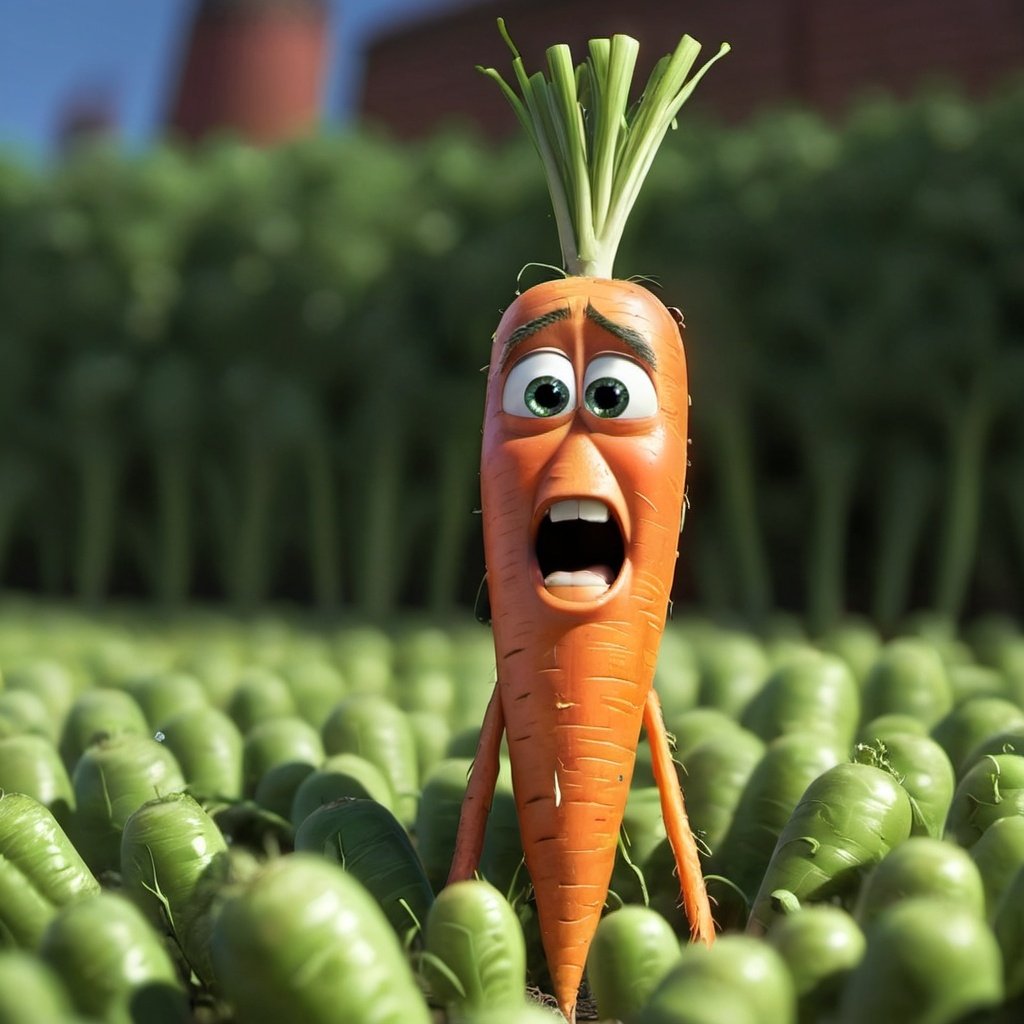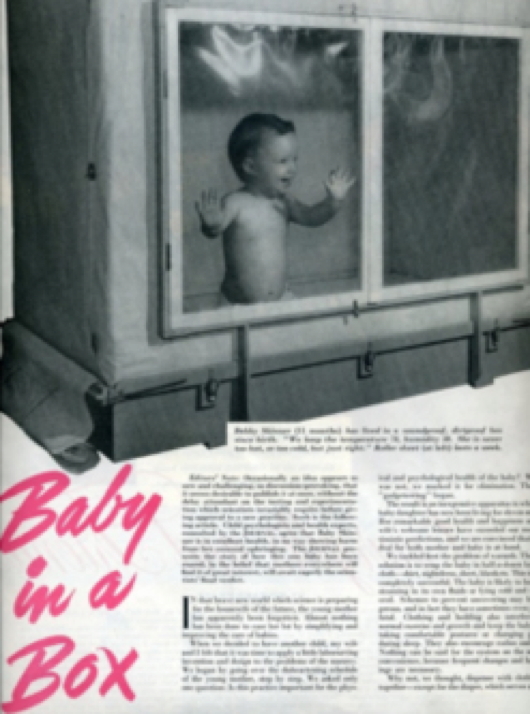
Reprint of a post originally published September 27, 2023.
Preface
At social gatherings, when someone discovers that my wife and I are both psychologists, there inevitably follows an awkward pause, and then one of the following awkward observations: “You must have had SUCH an advantage in parenting,” or “HEAVEN HELP YOUR POOR CHILDREN!” The truth lies somewhere in between.
If the organism is always right,
then I guess parents aren’t organisms.
– Ronnie Detrich

In “Case history in scientific method” B.F. Skinner said about one of his early efforts at research that, “The major result of [my] experiment is that some of my rats had babies.”
As every reader of this blog understands, rat behavior can be a pretty good predictor of human behavior, so with a bit of creative extrapolation we may surmise that, for many behavior analysts, the major result of years of specialized scientific and clinical training will be… children. Biological maturation, socialization, individual temperament, and chance often conspire to create the fraught condition known as parenthood. Those afflicted quickly realize the condition is both incurable and beyond the scope of any professional skill set.
The other day I was texting with my friend (and one of the best applied behavior analysts I know), Dan Fienup of Columbia University, when Dan went dark for a few minutes. Then he sent this:
Every parent, behavior analyst or otherwise, has had That Moment… the one where you realize that nothing in your upbringing, adult life experience, or professional training has prepared you for what parenting plops into your lap. Dan’s note reminded me of my favorite story about the late Ronnie Detrich — or, more accurately, about Ronnie creating what must have been That Moment for his mother.
When little Ronnie reached the requisite age his mother enrolled him in public school. She bought him new school clothes and supplies, and spent considerable time preparing him for what happens during a school day. She and Ronnie even walked through the school building together ahead of time so he’d find it familiar. Finally the big day arrived and mom dropped Ronnie off at school to start first grade. The drop-off went flawlessly and I’m sure mom congratulated herself for engineering such a smooth transition… until a few hours later when she found Ronnie sitting in the kitchen, munching contentedly on a sandwich he’d made for himself. “Why aren’t you in school?” she asked frantically. “Well… I tried it” Ronnie replied without looking up from his sandwich, “but it just wasn’t for me.”
Sometimes my kid is just an asshole.
– Name withheld (but you know who you are)
Based partly on an unscientific poll of acquaintances (and possibly my own parenting experience, though I’ll never tell), here are some further examples of That Moment.
- Discovering that your toddler will only release a bowel movement while wearing a diaper inside a plastic playhouse on display in front of WalMart. Not any WalMart, only the one on the east side of town.
- Realizing that your 4-year old can subitize stairs (i.e., perceive how many steps there are without counting) and refuses to go up any stairwell with an odd number.

- Waiting to pick up your 5-year-old after the second day of kindergarten, only to find she’s nowhere in sight. With the help of a teacher you piece together that she was intrigued by that thing called “school bus” and decided to board one… but nobody knows which one. That finally gets resolved a couple of hours later when you receive a call from the school district’s bus depot. Seems your daughter enjoyed the ride so much she made it last as long as possible by hiding under a seat so she wouldn’t have to get off with the last children at the final stop. Back at the bus yard, she sat happily in the parked vehicle for about an hour before signaling someone to let her out because she wanted to know if the dispatch building had snacks.
- Finding out that your daughter, for whom you developed an impressive Behavioral Skills Training program to teach tampon use when that became necessary, has, for the last two years, been saving the used ones in her top dresser drawer as… Trophies? Mementos? Imaginary friends?
- Pretty much anything else from the teen years.
If any of these examples resonates with you, then you know why I sought out Great Psychologists as Parents: Does Knowing the Theory Make You an Expert? (by David Cohen; published 2017 by Taylor and Francis). A bit on the book follows, but anyone who’s been on the parenting treadmill can anticipate the gist: There is way too much going on in the flow of everyday life to be constructively analytical all of the time. Or even much of the time. Or, some days, at all.
What a PhD gives you is the ability to
name all of your parenting mistakes.
– Karla Doepke
My wife and I, before we became parents, both had spent a great deal of time around children. Her background is in special education and child clinical psychology, and for a decade or so I coached a youth swim team of about 130 kids. This made us realists about small human beings, and we knew there were limits to what we’d be able to accomplish with them. Once we had kids, we resolved to never try to fight more than two parenting battles at a time, and to forgive ourselves for our failures on other fronts.
That plan probably saved us a lot of stress, but like all best-laid plans it had unintended consequences. We knew our Hart and Risley, so our first parenting priority was to emphasize language development. We wanted our kids to be confident speakers who understood the social function of language. So we gave them lots of practice with using words to assert control in a social interaction. By the time our girls were 5 or 6, they were negotiating circles around us, and I’m not sure any meaningful parenting really occurred after that.

Our second parenting priority was to teach theory of mind and empathy. We did a lot to establish what the Relational Frame Theory folks call deictic relations, and we congratulated ourselves on shaping up the kind of people who would routinely extend consideration to others (not a trivial thing these days, by the way). But then one evening our older daughter, upon finding herself too full at dinner to finish her carrots, burst into tears because she was worried the carrots would be sad she neglected them. When we tried to teach her how to train the dog she floundered, because it broke her heart to withhold treats when the shaping routine called for that. Later on, our younger daughter’s clothes kept disappearing… if another child liked something she owned, she’d give it to them, even if it was something she really valued. These are, unfortunately, just a few examples from among many on the same theme. Today both of our daughters, now adults, would tell you that they still have difficulty saying “enough” to those who might take advantage of them. In hindsight, to complement empathy we should also have taught our girls how to kick a little ass.
“Never blame the learner” is an emotional
screw-you to behavior analyst parents.
– Dan Fienup
But that’s the point. In the stream of everyday life, you only have so much bandwidth to devote to parenting, and you ARE going to be imperfect… which is a great lens through which to view Great Psychologists. Its chapters, based on archival research and personal interviews where possible, examine parent-child relationships in which the parents were such notables as Carl Rogers, Sigmund Freud, Jean Piaget, and John B. Watson. The results are predictably varied, with some of those relationships being warm and supportive and others trending toward the toxic. In all cases examined, even the positive ones, the outcome is decidedly imperfect. As the book’s introduction notes:
In many ways, this book is about more than a century of failure. Thousands of psychologists have studied how children develop, what makes them secure, insecure, confident, inadequate, eager to achieve or not; we should have learned something from all this effort. Psychologists should have more knowledge and insight than “ordinary” parents.
“Should” is an abstraction. Parenting takes place in the real world, which is chock full of Those Moments, like bloody noses and crestfallen carrots and school-bus stowaways.
 Because the book is an enjoyable read and a thought-provoking inquiry into inevitably imperfect parenting, I won’t offer up spoilers, except for this one: Despite its provocative title, the chapter called, “Burrhis Skinner: The man who caged his daughters?” avoids the common mis-portrayal of the air crib (here’s its original 1945 description in Ladies Home Journal) as solitary confinement or an experimental chamber. It correctly describes the air crib as an innovation to free up adult time and effort for meaningful parenting, and it portrays Skinner as a devoted father whose children adored him.
Because the book is an enjoyable read and a thought-provoking inquiry into inevitably imperfect parenting, I won’t offer up spoilers, except for this one: Despite its provocative title, the chapter called, “Burrhis Skinner: The man who caged his daughters?” avoids the common mis-portrayal of the air crib (here’s its original 1945 description in Ladies Home Journal) as solitary confinement or an experimental chamber. It correctly describes the air crib as an innovation to free up adult time and effort for meaningful parenting, and it portrays Skinner as a devoted father whose children adored him.
For some corroborating evidence, check out Julie Vargas talking about the air crib, and her sister Deborah Skinner Buzan writing about what their childhood was really like. As Deborah noted, the rumor mill has been particularly vicious about Skinner’s parenting. SUPPOSEDLY…
My father kept me in a cramped square cage that was equipped with bells and food trays, and arranged for experiments that delivered rewards and punishments… After my father ‘let me out’, I became psychotic….I sued him in a court of law…. Contrary to hearsay, I didn’t shoot myself in a bowling alley in Billings, Montana. I have never even been to Billings, Montana.
That Great Psychologists resists such sensationalist drivel shows that it is serious scholarship. While the book benefits from solid research and clear writing, its central strength is a decidedly practical vibe rooted in the concept of “the good enough parent.” This volume is not into the blood sport of taking down celebrities just to see them fall, and it’s not a screed on some impossible That-Moment-free standard that no parent can meet. In the end, it’s an examination of how real people, including those with presumably special insight into child behavior, might parent in the real world. For anyone afflicted with the condition known as parenthood, it’s therapeutic to breathe deeply and take a “moment” to reflect on that.
Postscripts
on parenting
It’s funny that most behavior analyst parents I know judge themselves much more harshly than they would ever judge other parents. Saner perspectives:
- When we select a “godparent” (substitute caretaker in case that ever becomes necessary), we don’t expect that person to be an infallible “parenting god.” Recently a colleague shared that when she and her husband chose a godparent, they sought only someone who “had the values and beliefs in the critical areas of life that we felt were important to raise our children.” She didn’t say they picked someone who would never make a mistake.
- In working with parents on a professional level we are all realists. For instance, in The Everyday Parenting Toolkit, Yale Psychologist Alan Kazdin, whose background is in applied behavior analysis, offers advice that should be familiar to anyone who’s ever done credible work with parents:
You have to use the tools properly… but you don’t have to be perfect. Less-than-perfect applications of the techniques in this book will still be very likely to improve your child’s behavior…. And there’s no need to change your life to use every single one of the techniques I offer you in every possible situation.
on the air crib
- An account of the company that was established to build and sell air cribs.
- A Dutch company that still manufactures and sells something similar to Skinner’s original air crib.
- Robert Epstein’s claim to have contacted 50 people who were raised in air cribs and found them to be happy and healthy adults. Honestly I’m skeptical, because I’m not sure I know 50 people who were NOT raised in air cribs who are happy and healthy adults. But let’s give Robert the benefit of the doubt.
